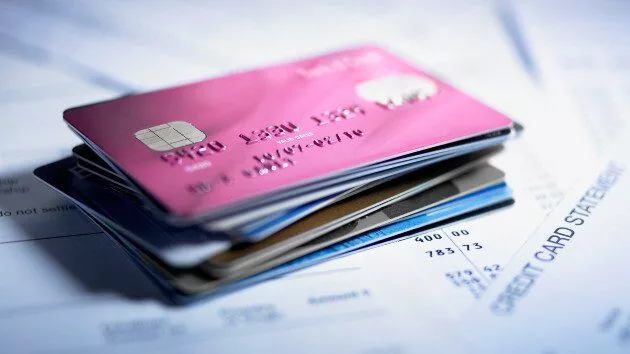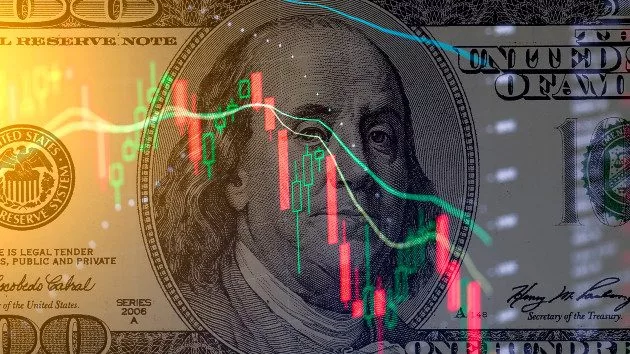
(NEW YORK) — Americans’ household debt — including credit cards, mortgages, auto loans and student loans — is at a new all-time high $18.04 trillion, according to a report released Thursday by the Federal Reserve Bank of New York.
Overall debt grew by $93 billion in the last three months of 2024 — and about half of that increase was new credit card debt.
Americans’ total credit card balances now stand at a record-high $1.21 trillion.
On a call with reporters Thursday, New York Federal Reserve researchers said credit card debt typically goes up at the end of the year when consumers do their holiday shopping. Researchers said they expect balances will decline at the start of this year as shoppers start to pay down that debt.
High interest rates are another factor behind elevated credit card debt levels, the researchers said. They added that income levels have been going up as debt is increasing, a positive sign for the health of the economy.
Delinquencies — reflecting missed payments on credit card bills — also ticked up in the fourth quarter.
The report highlighted higher delinquency rates for auto loans, too. Americans hold nearly $1.7 trillion in auto loan debt.
New York Federal Reserve researchers said higher new and used car prices in the wake of the pandemic are a key reason why some Americans are behind on their auto payments.
“While mortgage delinquency rates are similar to pre-pandemic levels, auto loan delinquency transition rates remain elevated,” said Wilbert van der Klaauw, economic research adviser at the New York Federal Reserve. “High auto loan delinquency rates are broad-based across credit scores and income levels.”
Copyright © 2025, ABC Audio. All rights reserved.








